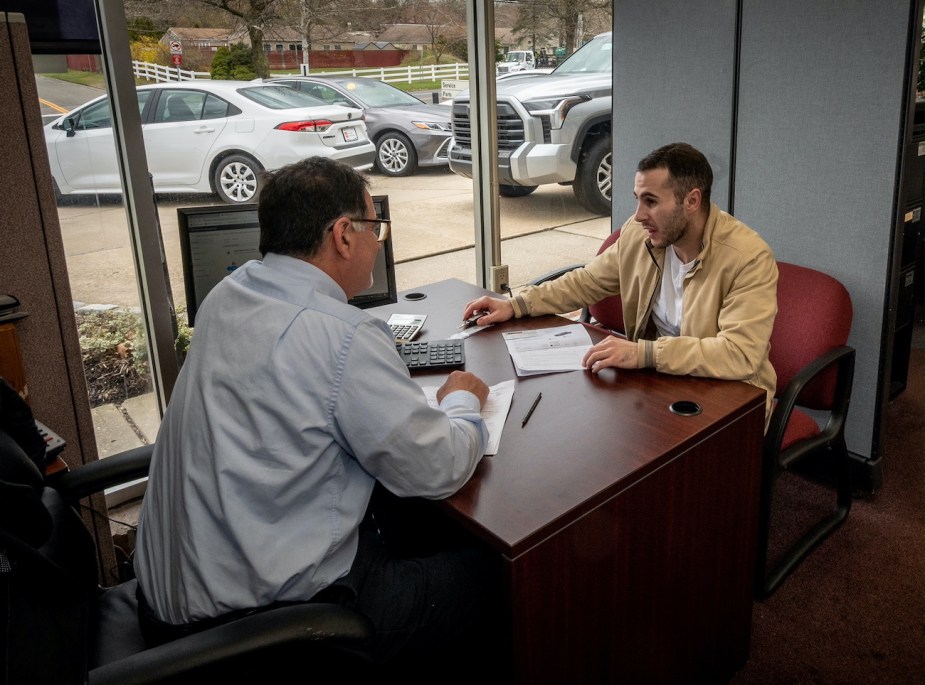
What Documents Do I Need to Sell My Car?
The ongoing used car inventory shortage has created a “seller’s market” over the past year, which means that if you have a car to get rid of, now is the best time. In fact, you can get a lot more money than you would expect for your car. However, you will want to ensure that you have all of the necessary documents in place when it comes time to hand over the keys to the new owner. Here is a list of what you will need.
The car’s title (pink slip) is the most important document

Trying to sell a car without its title – also known as the “pink slip” – is quite the challenge. According to Cars.com, “the title serves as legal proof of ownership and includes details like the car’s make, model, year, and vehicle identification number (VIN).” If you don’t have the title to your car, then you can always apply for a replacement with the DMV.
If the car is financed and you still owe money on it, then the lender – or lienholder – will hold the title until the loan is paid off. In that case, if you’re trading in your car at a dealership, the dealer will take the necessary steps to pay off the loan and secure the title. But if you’re selling the car privately, then you’ll need to arrange the payments and title transfer with the lienholder and the buyer.
A bill of sale could be necessary
In some states, a bill of sale is needed to complete the sales process. The bill of sale will include information like the car’s VIN, a description of the car, the date of the sale, and the purchase price. This document will need to be signed by both parties before the car is sold and it does not take the place of a title transfer. Instead, it’s more like a receipt for the purchase that outlines the details of the transaction. In order to get a bill of sale, you can download a template on your local DMV’s website.
A vehicle history report is always good to have on hand

If you’re selling your car privately, then it can be an advantage to have the car’s vehicle history report on hand. This report will show details like whether the car’s title is “clean” or “salvaged,” where it’s been serviced, and if it has been in any accidents. The new owner will definitely want to know this information, so printing out reports from Carfax or Autocheck is a good idea.
Proof of sale could be needed as well

After you have successfully sold the vehicle, you may need to complete one last document to waive all liability for the car. In some states, a proof of sale is required within a certain amount of days. For example, if you sell a car in California, the seller has five days to send in a “Notice of Transfer and Release of Liability form” to the DMV in order to absolve themselves of any liability for the car. Failing to do so could mean that they would be responsible for any tickets or accidents that the new owner incurs.
Make sure to have all of your car sales documents in order
It’s a great time to sell your car right now, however, it’s important to have all of these documents in place before doing so. If you don’t, you may be scrambling around to get everything set up after finding a new buyer and there could be some holdups in the process. Make the process easy by having these documents in order.



